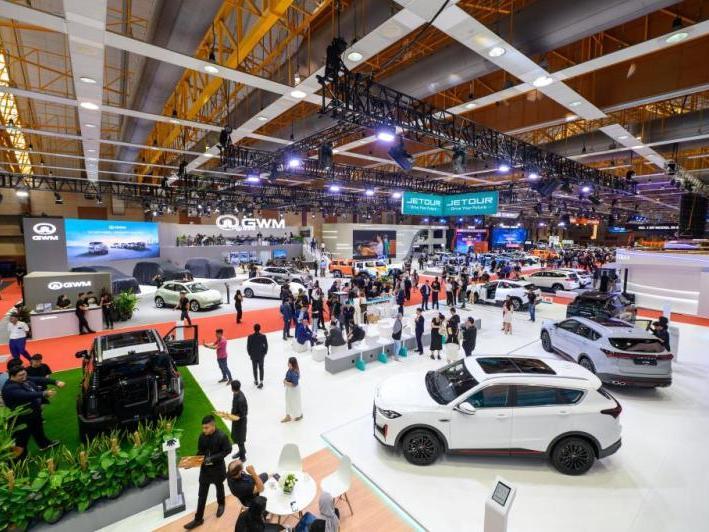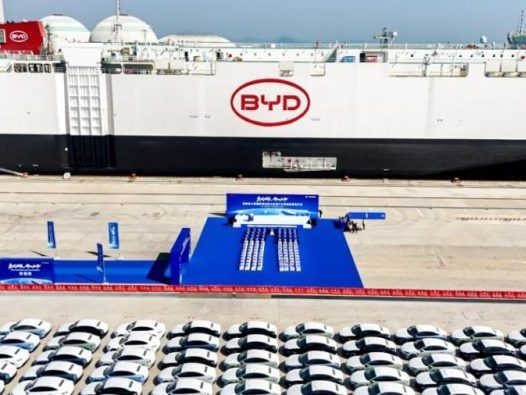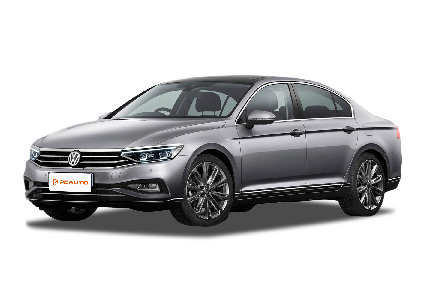Q
Are there any recalls on a 2018 VW Passat?
For the record, the 2018 Volkswagen Passat was subject to safety-related recalls in certain markets. In North America, for instance, a recall was issued due to a potential fault in the fuel pump control unit that could lead to stalling. As for the Malaysian market, it's best to refer to official Volkswagen announcements there. We recommend owners check via the recall inquiry page on Volkswagen Malaysia's website by entering their Vehicle Identification Number (VIN) or contact an authorized service center directly, as recall situations can vary by region based on local regulations and vehicle specifications.
Staying on top of recall information is a key part of vehicle maintenance, especially for updates involving critical components like airbags, fuel systems, or electronic stability programs. Even if your Passat isn't part of a recall, sticking to the manufacturer's maintenance schedule is crucial to keep it running at its best. For more details on common upkeep points specific to the Passat—think DSG transmission care or turbocharged engine maintenance tips—reaching out to local Volkswagen technicians is the way to go for personalized advice.
Special Disclaimer: This content is published by users and does not represent the views or position of PCauto.
Related Q&A
Q
How much is a 2018 Passat worth trade-in?
The 2018 Volkswagen Passat typically holds a used car trade - in value between RM70,000 and RM120,000 in Malaysia. The exact figure hinges on factors like overall condition, mileage, trim level, and service history, higher - spec models such as the R - Line variant or those with lower mileage usually fetch higher prices. In Malaysia's used car market, demand for German mid - size sedans like the Passat remains steady, thanks to their solid reputation among local buyers for reliability and comfort. If you're looking to trade yours in, I'd recommend getting free valuations from official dealerships or reputable used car platforms first. And don't forget to keep those service records complete – they can really help boost your car's residual value. One thing to note: used car prices here are also influenced by new car promotions. If the Passat has been getting big discounts recently, it might temporarily drag down the second - hand market. From a mechanical perspective, the Passat's 1.8TSI and 2.0TSI engines hold up well in our tropical climate, but regular coolant and transmission fluid changes are essential. These little maintenance details directly affect what your car is worth in the end. For the most accurate trade - in quote, your best bet is to take the car to several certified used car dealers for on - site inspections and compare their offers.
Q
When to change the timing belt on a Passat?
Volkswagen Passat owners in Malaysia need to pay special attention to the timing belt replacement interval, especially considering how our hot and humid climate accelerates rubber component aging. According to the manufacturer's recommendations, Passat models equipped with 1.8T or 2.0T petrol engines should have the timing belt replaced once they hit 90,000 to 105,000 kilometers or after 5 to 6 years, whichever comes first. For diesel variants, due to higher operating loads, it's advisable to inspect the belt as early as 80,000 kilometers.
In practice, always replace the tensioner pulley and water pump simultaneously—water pump failures can cause coolant leaks that corrode the belt. Malaysia's damp conditions speed up belt cracking, so if you hear unusual squeaking from the engine bay or notice increased rough idling on cold starts, get it checked immediately.
It's worth noting that some newer Passat models have switched to maintenance-free timing chains, but most pre-2015 models still use belts. Owners can check their specific configuration by providing the VIN to an authorized service center. During regular servicing, have the belt inspected for cracks or missing teeth. If the vehicle sits unused for long periods, pay extra attention to belt elasticity—rubber components actually harden faster when stationary. For those who frequently drive in congested areas like Kuala Lumpur, the constant stop-start driving puts extra strain on the belt, so consider slightly shortening the replacement interval.
Q
What kind of engine is in the 2018 Passat?
For the Malaysian market, the 2018 Volkswagen Passat primarily offers two petrol engine options: the 1.8-litre TSI turbocharged engine and the 2.0-litre TSI turbocharged engine. The 1.8L TSI churns out a healthy 180 horsepower and 250 Nm of torque, while the 2.0L TSI ups the ante with a more robust 220 horsepower and 350 Nm. Both engines are paired with Volkswagen's DSG dual-clutch gearbox, delivering that smooth yet efficient driving feel we've come to expect.
For Malaysian buyers, turbocharged tech makes a lot of sense here – it handles our hot climate and varied road conditions pretty well, balancing decent power delivery with better fuel economy. It's worth noting that these TSI engines use direct fuel injection, which precisely controls fuel delivery to boost combustion efficiency. You'll find similar tech in rival Japanese or European models, of course, but each brand tunes things differently. Volkswagen tends to prioritize low-end torque, which is really handy for daily city driving.
If you're looking at used models or parallel imports, you might come across diesel TDI engines, though they're pretty rare finds in the Malaysian market.
Q
Which year is Passat best?
The Volkswagen Passat has always performed well in the Malaysian market, especially the B8 generation models introduced from 2015 to 2017, which have built up quite a solid reputation. This generation of Passat moved to the MQB platform, making the body lighter while improving handling. It also came packed with advanced driver assistance systems like adaptive cruise control and lane keeping – features that really suit Malaysia's long-distance driving needs. What's more, the 1.8TSI and 2.0TSI engines struck a nice balance between power and fuel efficiency, while the diesel TDI variant offered even more torque, perfect for those who frequently hit the highway. Inside, the B8 generation got a significant upgrade too, with a digital instrument cluster and a larger infotainment screen as standard, giving it a really tech-forward feel. Of course, the facelifted models from 2019 onwards further refined the front-end design and infotainment system, but they do come with a heftier price tag. If you're working with a tighter budget, the 2015-2017 used B8 models offer much better value for money. One thing to keep in mind though – Malaysia's hot and rainy climate can be tough on European car electronics. It's advisable to prioritize units with complete service records and to regularly check the electrical systems and cooling components.
Q
What is the fuel consumption of the 2018 Passat?
The 2018 Volkswagen Passat's fuel economy in the Malaysian market varies depending on the engine under the hood. The 1.8-liter TSI turbocharged petrol engine returns a combined fuel consumption figure of around 6.6 liters per 100 kilometers, while the more powerful 2.0-liter TSI variant edges up slightly to approximately 7.2 liters per 100 km. Of course, real-world numbers can fluctuate based on your driving style, the roads you tackle, and how well you keep up with maintenance.
Diesel fans, listen up – the 2.0-liter TDI diesel engine is the efficiency star here, with a combined fuel consumption as low as 4.8 liters per 100 km, making it a solid choice for those long highway cruises. It's worth highlighting that the Passat's direct fuel injection and DSG dual-clutch transmission work together to maximize fuel efficiency – tech that's pretty much standard fare in mid-to-premium sedans these days.
Malaysian drivers should also factor in local fuel quality and our climate when considering economy. Sticking to regular air filter replacements and using the recommended engine oil will go a long way in keeping those fuel consumption figures in check. If you're really chasing the ultimate in fuel sipping, keep an eye out for Volkswagen's plug-in hybrid Passat GTE, which offers extended all-electric driving with zero fuel consumption.
Q
How much is insurance for a 2018 Volkswagen Passat?
Insurance costs for the 2018 Volkswagen Passat in Malaysia can vary quite a bit depending on several factors, but you're generally looking at a range of around RM2,000 to RM5,000. The exact figure hinges on things like the car's market value, engine size—so whether it's the 1.8TSI or 2.0TSI—your age, driving history, and the type of coverage you go for, be it comprehensive or third-party only. On top of that, quotes can differ between insurers like Etiqa, Allianz, or Tune Protect, so your best bet is to check directly on their websites or use a comparison platform to get a precise number.
It's worth noting that car insurance in Malaysia typically comes with basic coverage: third-party liability, fire, and theft. But if you want extras like windscreen protection or natural disaster coverage, that'll bump up the premium. Being a German mid-size sedan, the Passat's higher parts costs can also play into insurance pricing. To keep costs down, consider increasing your voluntary excess (NCD) and regularly shop around for insurer promotions—like no-claim discounts or bundle deals. These little steps can help save on your long-term motoring expenses.
Q
Is a 2018 Volkswagen Passat a good car?
The 2018 Volkswagen Passat is a solid performer in Malaysia's midsize sedan segment, winning over families and business users alike with its comfortable ride, well-sorted chassis, and practical cabin layout. Under the hood, the 1.8-liter TSI turbo engine delivers plenty of pep while keeping fuel consumption in check – perfect for both Malaysian city commutes and longer highway stretches. Inside, it's classic Volkswagen simplicity, with materials and build quality that sit comfortably above average for the class. The infotainment and driver-assist features? They get the job done without fuss. Now, remember, like any used car, always dig into the service history and mechanical condition before buying. Pay extra attention to the gearbox and electronics to make sure everything's running smoothly. On the plus side, VW's after-sales network in Malaysia is pretty extensive, and parts availability is generally good – that's a big bonus for long-term ownership. If you're considering one, do yourself a favor and take it for a test drive to get a feel for how it actually drives. And hey, it wouldn't hurt to cross-shop with rivals like the Toyota Camry or Honda Accord to make sure you're getting the best fit for your needs.
Q
How reliable is the 2018 Passat?
The 2018 Volkswagen Passat has proven to be a generally reliable choice in the Malaysian market. Its tried-and-tested TSI turbocharged engine and DSG dual-clutch gearbox deliver smooth power and decent fuel efficiency, making it well-suited for both daily city commutes and longer highway drives here. Inside, there's plenty of space, and the suspension is tuned for comfort, handling Malaysia's varied road conditions capably.
You might encounter some minor niggles, though – things like occasional glitches with the electronics or a creaky sunroof. But staying on top of regular servicing and software updates usually keeps those issues in check. It's worth noting that maintenance costs for the Passat tend to be a bit higher than your average Japanese competitors in the same class. I'd recommend sticking with authorized VW service centers to ensure you're getting quality parts.
If you're looking at a used Passat, pay extra attention to how smoothly the gearbox shifts and check for any wear on the chassis rubber components. A complete service history is also a must-have when you're doing your due diligence.
Against its peers, the Passat still holds an edge when it comes to cabin quietness and high-speed stability. If your budget stretches that far, springing for a variant with the driver assistance package is a smart move – features like automatic emergency braking and adaptive cruise control really come in handy in Malaysia's often chaotic traffic.
Q
What is the price of VW Passat 2018?
If you're looking at a used 2018 Volkswagen Passat in Malaysia, prices typically range from around RM80,000 to RM120,000. It really depends on the condition, mileage, and trim level, though. The base 1.8 TSI models are usually on the lower end of that spectrum, while the top - spec 2.0 TSI or those with the R - Line package will fetch a higher price. This German midsizer is known for its solid chassis setup and efficient turbocharged engines. The 2018 model came equipped with an 8 - inch touchscreen and tri - zone climate control as standard, and some higher - spec versions even got adaptive cruise control and a digital instrument cluster. A piece of advice when buying a used car: always go through official certified channels or have a professional inspection conducted to check the vehicle's history. It's especially important to check the maintenance records of the DSG gearbox. Also, Malaysia's hot and humid weather can speed up the aging of rubber components, so a thorough inspection of the chassis bushings and weatherstripping is also crucial. If you're considering Japanese alternatives in the same class, it's worth checking out the used market for the Toyota Camry or Honda Accord. Different brands have their own pros and cons when it comes to maintenance costs and parts availability.
Q
What generation is the 2018 Passat?
The 2018 Volkswagen Passat falls under the eighth-generation model, codenamed B8. This generation first hit the scene back in 2014, got a minor refresh in 2016, and the 2018 version carried forward the B8's design and tech package. Styling-wise, it sports VW's signature horizontal chrome grille and sharper LED headlights. Inside, you'll find a digital instrument cluster and advanced driver assistance systems, giving the cabin an overall vibe that's equal parts business and tech-forward.
For the Malaysian market, the 2018 Passat typically came with engine choices like the 1.8 TSI or 2.0 TSI petrol units, with some variants likely packing the DSG dual-clutch gearbox – a combo that balances pep and fuel efficiency pretty well. Safety got a solid upgrade with the eighth-gen Passat too, featuring stuff like adaptive cruise control, lane keeping assist, and automatic emergency braking, all meeting major global safety standards.
It's worth noting that the Passat B8 is built on VW's MQB platform, which also underpins models like the Skoda Superb. This shared platform allows for tech resource sharing while still letting each brand keep its own distinct character. For Malaysian buyers, the Passat B8 stands out as a midsize sedan that nails both comfort and practicality, making it a solid pick whether you're using it for family duties or business trips.
Latest Q&A
Q
What kind of oil does 2018 Passat use?
For the 2018 Volkswagen Passat in Malaysia, the recommended oil specs typically call for synthetic oils that meet VW 502 00 or VW 504 00 standards, with viscosity grades of 5W-30 or 5W-40 being the go-to choices. Your final pick should really depend on your actual driving conditions and habits though – here in Malaysia's hot climate, for example, 5W-40 might be the better bet thanks to its stronger high-temperature protection.
Sticking to regular oil changes is huge for keeping your engine running strong long-term. As a general rule, aim to change it every 10,000 kilometers or 12 months, whichever comes first. Also, when you're picking out oil, always double-check that it has international certifications like API SN or ACEA A3/B4 – that's your guarantee of reliable quality.
If your Passat has a diesel engine or is a high-performance variant, it might need a specific oil type, so your best move is to check the owner's manual or have a chat with an authorized service center. It's also handy to know what those oil numbers mean – "5W" tells you about cold-weather flow, while "40" refers to hot-temperature thickness. A little knowledge here goes a long way in helping you make the smartest choice for your car.
Q
Does a 2018 Volkswagen Passat have a turbo?
The 2018 Volkswagen Passat in Malaysia does come with a turbocharged engine, specifically a 1.8-liter TSI turbocharged petrol unit. This engine pushes out 180 horsepower and 250 Nm of torque, and it's a solid combo of turbo tech and direct injection that delivers great power while still being kind on fuel – perfect for both city commuting and those longer highway drives we Malaysians love. Turbocharging works by compressing the intake air, which boosts engine efficiency and power, so you get plenty of torque even at low revs, making acceleration feel smooth and effortless.
On top of that, the 2018 Passat also gets VW's DSG dual-clutch gearbox, which really sharpens up the shifts and makes the whole driving experience that much more engaging. For Malaysian buyers, a turbo engine isn't just about daily driving needs; it also gives you that extra oomph for confident overtaking on the highway. And let's not forget, Volkswagen's reputation for reliability and their widespread after-sales network here mean owning one is pretty hassle-free.
If turbo tech has caught your interest, it's worth checking out turbo models from other brands like Toyota or Honda too – each has their own engineering twists. But when it comes to balancing power and fuel efficiency, VW's TSI engines really stand out from the pack.
Q
What is the fuel consumption of the 2018 Volkswagen Passat?
The 2018 Volkswagen Passat's fuel economy in the Malaysian market varies depending on the powertrain. The 1.8-liter TSI turbocharged engine variant delivers a combined fuel consumption of around 6.5 liters per 100 kilometers, while the 2.0-liter TSI model is slightly thirstier at approximately 7.2 liters per 100 kilometers. Real-world figures, of course, can fluctuate based on driving habits, road conditions, and maintenance upkeep.
Riding on Volkswagen Group's proven MQB platform and paired with a DSG dual-clutch transmission, this model strikes a nice balance between power delivery and fuel efficiency – ideal for both city commutes and highway stretches across Malaysia. It's worth highlighting how turbocharging technology effectively boosts performance from smaller-displacement engines while keeping fuel consumption relatively low, a trend we've seen increasingly adopted in mid-size sedans here in the local market.
To keep your Passat running at its most efficient, regular maintenance is key. Make sure to replace the air filter and spark plugs as scheduled, and always use engine oil that meets the manufacturer's specifications. These simple steps go a long way in preserving optimal fuel economy over time.
If you're in the market for a used Passat, do yourself a favor and check the complete service history through official channels. It's the best way to ensure the vehicle still performs as well as it did when it left the factory.
Q
Why is my 2018 Passat not starting?
There are a few common reasons why your 2018 Passat might be refusing to start. First up, battery issues. Malaysia's hot and humid climate can really take a toll on battery life, so it's worth checking if the voltage has dropped below 12.4 volts or if the terminals are looking corroded.
Next, a faulty starter motor or alternator could be the culprit – both can leave you short on electrical power. Don't rule out fuel system problems either, like a busted fuel pump or a clogged fuel filter. These tend to happen more often if you've been using low-quality petrol regularly.
Then there's the ignition system; worn spark plugs or a dodgy ignition coil can definitely make starting a hassle. If your Passat has a smart key, don't forget to check if the key fob battery is dead, which might stop the car from recognizing it.
If any warning lights are flashing on the dashboard – especially the check engine light – hook up an OBD scanner to read the trouble codes as soon as you can. For regular maintenance, swap out the battery every 2-3 years, stick to the recommended fuel grade, and replace the spark plugs around every 60,000 kilometers. These simple steps can go a long way in preventing starting headaches. If you've checked all this and still can't get it going, best to reach out to an authorized service center for a professional diagnosis.
Q
How to remote start a 2018 Passat?
To remote start your 2018 Volkswagen Passat, first make sure your ride is equipped with the factory remote start system or a compatible aftermarket module. The OEM setup typically works through the buttons on your key fob – just press and hold the lock button for a few seconds, then hold down the remote start button to fire up the engine. Aftermarket kits, though, might require using a smartphone app or an additional remote control. A quick heads-up: the car needs to be locked and have enough fuel in the tank before you hit that start button.
For our Malaysian friends, remote starting is a total game-changer in the tropical heat – it lets you kick on the AC early to cool things down before you even get in. But keep in mind, idling for too long can lead to carbon buildup, so regular maintenance is key to keep your engine running smooth. If your Passat didn’t come with remote start from the factory, check with your local authorized VW dealer or a trusted car electronics shop about installing a legal system. In Malaysia’s sweltering weather, this feature isn’t just nice to have – it’s pretty much essential. Just make sure whatever you install is JPJ-approved to keep things legit and safe on the road.
One last thing: Passat models from different years might have slight variations in how this works, so your best bet is to flip through the owner’s manual or give Volkswagen Malaysia’s customer service a shout for the most accurate info.
View MoreRelated News

Because of lack of funds to upgrade the factory, Volkswagen postponed the release of ID.Golf and ID.Roc
JamesSep 17, 2025

Volkswagen Locks Vehicle Horsepower, Unlocks Full Power via Subscription
JohnAug 19, 2025

Summarizing the 2025 Malaysia Auto Show, a large number of new cars were launched in Malaysia this year.
MichaelMay 12, 2025

Volkswagen ID.Buzz's Bizarre Recall: Third-Row Seats Too Wide, Need to Be Modified
Kevin WongMay 8, 2025

BYD Sets Global Sales Target of 5.5 Million Units for 2025
RobertMar 26, 2025
View More


















Pros
Cons